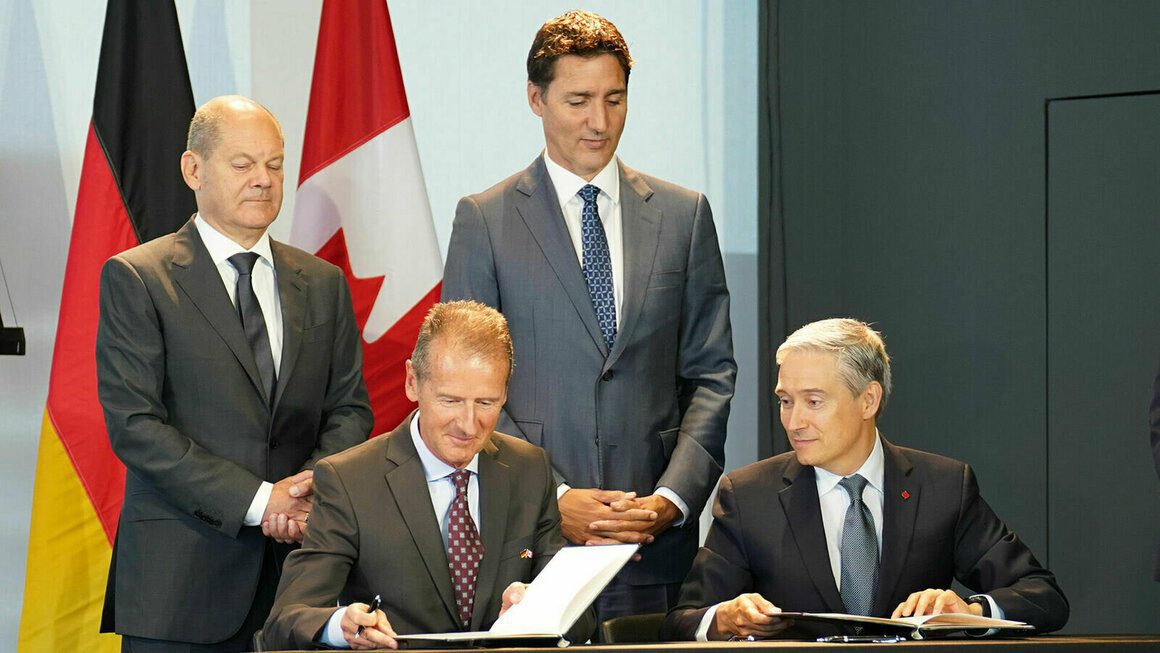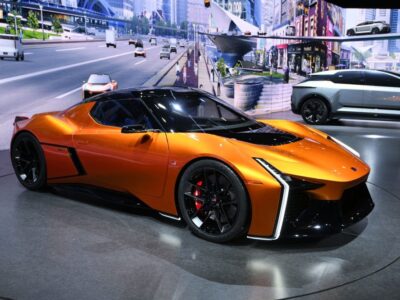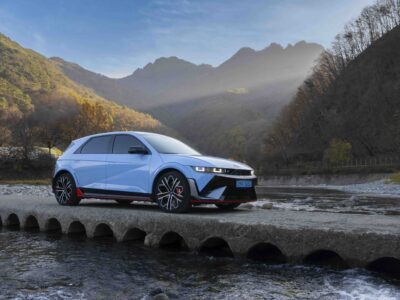In August, the Canadian government reached a landmark agreement with Volkswagen (VW) Auto Group for raw material acquisition for electric vehicle (EV) batteries. The German automaker seeks to ramp up its U.S. and Canadian EV production. The deal was formally signed during a meeting between Canadian Prime Minister Justin Trudeau and German Chancellor Olaf Scholz, furthering good relations between Germany and Canada.
Supply chain issues have hampered the EV production rate, especially in sourcing raw materials. Canada is rich in nickel, cobalt, and lithium, key elements used for batteries. With the U.S.’s Inflation Reduction Act (IRA) being signed into law, VW saw a moment when it could get materials to its U.S. factories and plants without heavy tariffs and taxes. This move follows the trend of European automakers increasing electric car production and opening factories across North America.
In addition to this agreement, VW is looking to open an in-house battery cell operation in the U.S., a desire the company voiced in June. The incoming president and CEO of VW North America, Pablo Di Si, aims to build 90,000 vehicles next year in the Chattanooga, TN, plant. He might meet that target now that his raw material sources are much closer and have fewer logistical challenges than those from abroad.
Canada’s location is one of the big reasons it emerged as an attractive source of battery materials. The IRA emphasizes buying North American-built EVs, and federal tax credits are expected for domestically-built cars.
Canada was the perfect country to source the materials from due to its shared border with the U.S. American federal tax credits can only apply to vehicles made with materials sourced from North America.
Along with abundant minerals, Canada already has substantial mining operations, which VW and other automakers are acquiring stakes in to increase EV production. Also, the Canada deal is partially in response to the VW battery shortage. Some of it is related to the severed German agreements with Russia, with Scholz saying Canada “has similar rich natural resources with the difference that it is a reliable democracy.” A steadier supply of natural resources will make producing EVs at a mass scale that much easier.
VW is not the only European automaker working with Canada for battery material sourcing. Mercedes also reached an agreement with Trudeau for mining lithium and other metals, as VW’s rival also looks to get their American EV footprint firmly established. Already striking a deal with China’s battery-cell startup, CATL, Mercedes is edging closer to meeting the goal of going fully electric by the end of the decade. The arrangement with CATL focuses more on supplying Europe with batteries, but the same principle applies.
With the IRA offering $7,500 tax credits to citizens for all North American-produced EVs, VW will have less red tape to deal with when it comes to getting minerals and metals to its U.S. plants to meet the demand. The company also will no longer have to pay heavy tariffs or taxes on shipments from Asia, Australia, and other lithium-rich countries. The upcoming VW ID4 EV is expected to meet the criteria for the credit.





